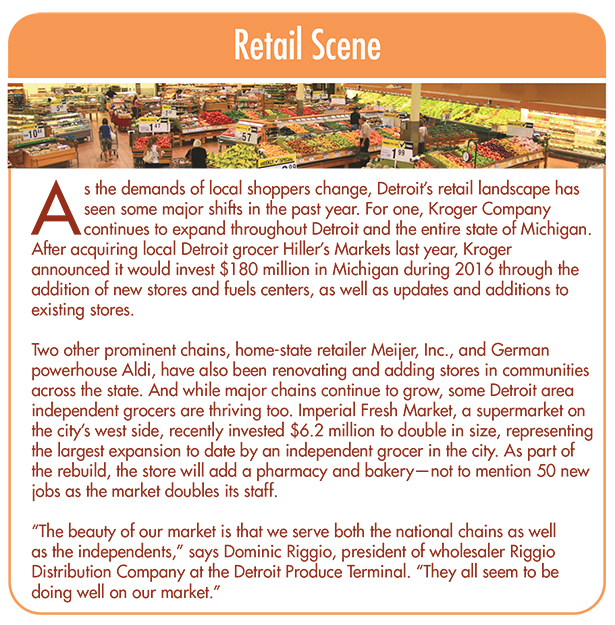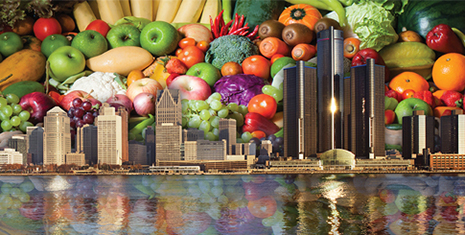Locally grown, too, is particularly hot. “As a local packer, this trend fits us very well,” Riggio comments. “We’re doing more and more with local growers and local providers,” he says. “Not everything we pack is grown locally because we’re a year-round company, but we definitely take advantage of locally grown product in season.”
Regarding organics, it’s a mixed bag. Russo says the category is growing, but slowly, and accounts for less than 10 percent of Rocky Produce’s product line. Riggio describes the demand as “growth spurts, then every few years it levels off.” But since there are now more organic growers (including more than 400 in Michigan alone), this “has helped bring prices down and the quality and availability up,” Riggio notes.


And because greenhouse-grown produce is always in season, Detroit’s wholesalers are sourcing an increasing amount of peppers, cucumbers, tomatoes, zucchini, lettuces, and spinach. While some of these items come from greenhouses within Michigan, most come across the bridge from Leamington, Ontario, North America’s top greenhouse producer.



